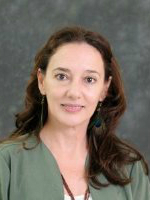BUILDing Diversity in Clinical Trials through Collaborations
Researchers from the University of Rochester Medical Center (URMC) are founding a collaborative project with researchers at Xavier University of Louisiana that aims to improve diversity in cancer clinical trials. Working together, the group hopes to enhance researchers’ cultural competency while educating underrepresented populations about the importance of participating in clinical trials.
Historically, clinical trial have lacked diversity among their participants. Incidence of disease and response to treatment varies between genders and among racial and ethnic groups. These effects can go undetected if the demographics of clinical trial participants do not adequately represent that of the general population.

In the URMC Department of Surgery’s Cancer Control program, Matthew Asare, Ph.D., research assistant professor and his mentor, Charles Kamen, Ph.D., assistant professor, have developed educational materials to help researchers better understand and engage underrepresented populations. With a standardized curriculum and educational brochures they hope to motivate clinical coordinators, who recruit clinical trial participants, to build relationships with the community and gain their trust.
Asare and Kamen are teaming up with Margarita Echeverri, Ph.D., assistant professor in the Division of Clinical and Administrative Sciences at Xavier University, to utilize a questionnaire she developed to assess how skillful health professionals feel when dealing with diverse populations. She has previously administered the questionnaire to doctors, med students, nurses, and pharmacy students in Louisiana.
“We can use this questionnaire here,” said Asare, “and maybe after getting the data, we can compare the responses of our health workers to the responses of those surveyed at Xavier.”

In addition, Echeverri has recently submitted a grant to test which educational methods are most effective at increasing underrepresented community members’ willingness to participate in clinical trials. She proposes to compare a face-to-face method, an educational booklet, and an informational DVD that Kamen and Asare helped her obtain through the National Cancer Institute’s Community Oncology Research Program (NCORP), for which URMC is a research base.
Echeverri’s grant submission, on which Kamen is a mentor, builds on her previous work assessing health behaviors of African American and Hispanic populations in Louisiana and how willing they would be to participate in a clinical trial or donate biospecimens like blood, urine, or tumor tissue, for example.
“Dr. Asare and I are coming at this project through the cancer clinic into the community,” said Kamen, “and Dr. Echeverri is coming at it from the community and into the cancer clinic. Our hope is that that’s going to match up nicely.”

The group developed their collaboration through the BUILD network (BUilding Infrastructure Leading to Diversity), which is part of the National Institutes of Health’s Diversity Program Consortium. BUILD administers experimental training awards to investigate ways to recruit and retain students from diverse backgrounds in the biomedical research workforce.
Xavier University, an Historically Black College or University, is one of the ten primary institutions in the BUILD network and has developed a partnership with the URMC. This partnership has created a pipeline to the UR School of Medicine and Dentistry for Xavier’s students and fosters collaborative research that provides additional opportunities for trainees who are underrepresented in biomedical research.
If you are interested in taking advantage of collaborative opportunities through BUILD, please contact the UR CTSI’s Director of Diversity and Inclusion, John Cullen, Ph.D., or Program Director of the Mentor Development Core, Vivian Lewis, M.D.
Michael Hazard |
8/25/2016
You may also like